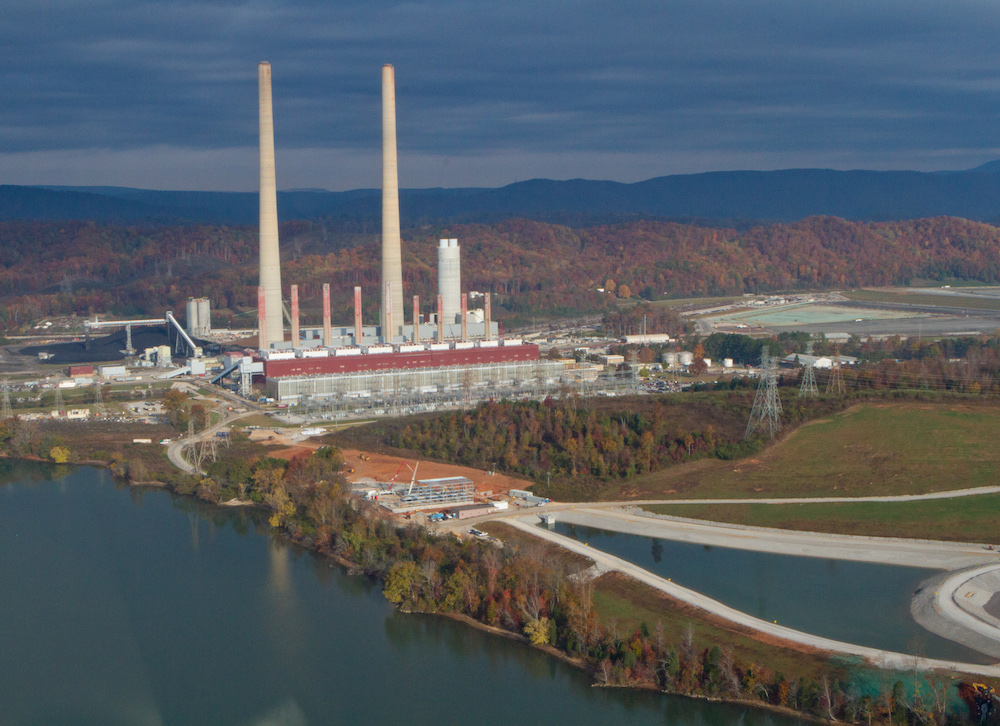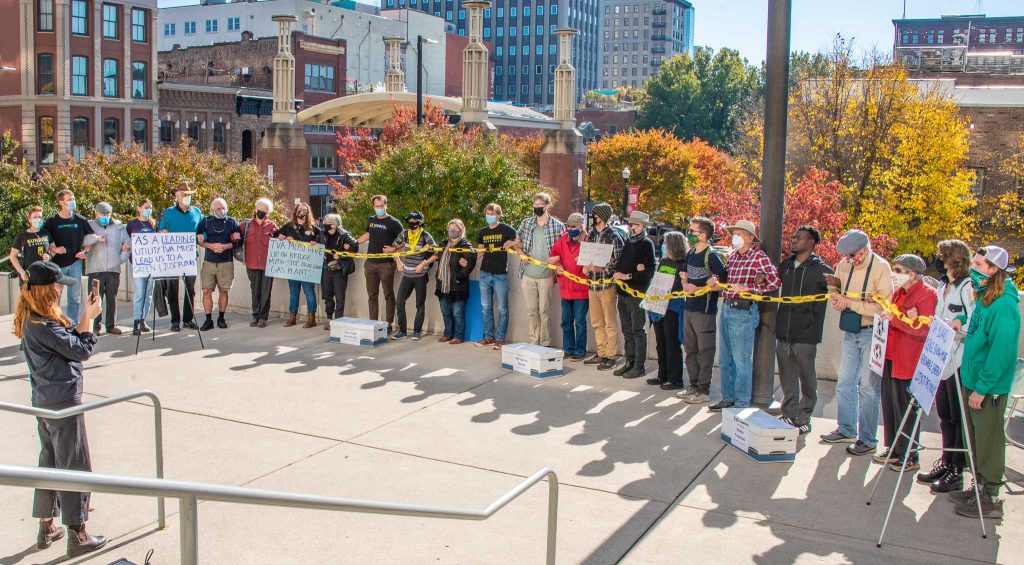Posts Tagged ‘gas buildout’
Lawsuit challenges TVA plan to build methane gas plant at site of massive Kingston industrial spill
The Southern Environmental Law Center, on behalf of Appalachian Voices, the Center for Biological Diversity, and Sierra Club, sued the Tennessee Valley Authority today for failing to consider cleaner and more cost-effective power options before deciding to build a new polluting methane gas plant at its Kingston location.
Read MoreCheatham County Sasquatch Festival: A hair-raising event to save the Sycamore Sasquatch!
FOR IMMEDIATE RELEASEOctober 8, 2024 CONTACTTracy O’Neill, Festival Organizer, info@ccsquatchfest.orgDan Radmacher, Media Specialist, dan@appvoices.org CHEATHAM COUNTY, Tenn. — Preserve Cheatham County is proud to announce the first-ever Cheatham County Sasquatch Festival. This uproarious event aims to save our beloved Sycamore Sasquatch from the clutches of progress — namely, the Tennessee Valley Authority’s plans to build…
Read MoreCleanUpTVA Coalition statement on Tennessee Valley Authority’s draft Integrated Resource Plan release
The Tennessee Valley Authority has released its draft 2025 Integrated Resource Plan today in which the federal utility lays out plans for how it will meet electricity demand through the next 25 years.
Read MoreThe TVA needs oversight. Its board of directors should step up — only one has.
For years, communities across the Tennessee Valley have been calling on the Tennessee Valley Authority, the largest public power provider in the country, to be more transparent in its planning and decision-making processes — and now even a TVA board member has expressed concerns.
Read More‘Rally for the Valley’ in Nashville to Demand TVA Stop Building Gas Plants
On Saturday, Sept. 21, people from across the Tennessee Valley will gather in Nashville’s Centennial Park to “Rally for the Valley” ahead of the release of the Tennessee Valley Authority’s new long-range energy plan, the 2025 Integrated Resource Plan.
Read MoreCommunity leaders, Bill McKibben call on TVA to stop gas buildout ahead of Nashville board meeting
Community members from across Tennessee, along with renowned environmentalist Bill McKibben, showed up to the TVA Board of Directors’ listening session on Wednesday.
Read MoreCommunities to hold ‘Rally for the Valley,’ demand TVA stop gas buildout
On Wednesday, May 8, people from across the Tennessee Valley will gather in Nashville’s Centennial Park to “Rally for the Valley” after the Tennessee Valley Authority Board of Directors’ Listening Session.
Read MoreCommunity members, conservation groups condemn TVA’s fossil fuel-driven rate hike
In a disappointing move, the Board of the Tennessee Valley Authority last week approved a 4.5% increase to its base power rate. This rate hike will go into effect in just a few weeks and will lead to higher electricity bills throughout the region.
Read More






